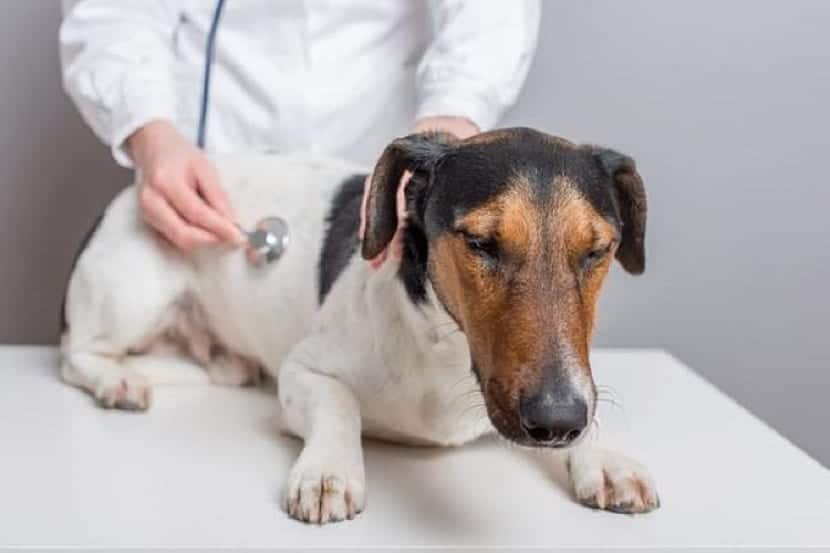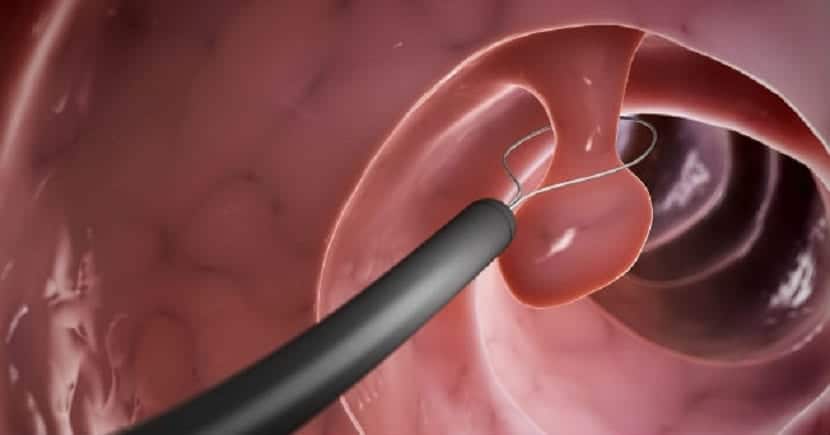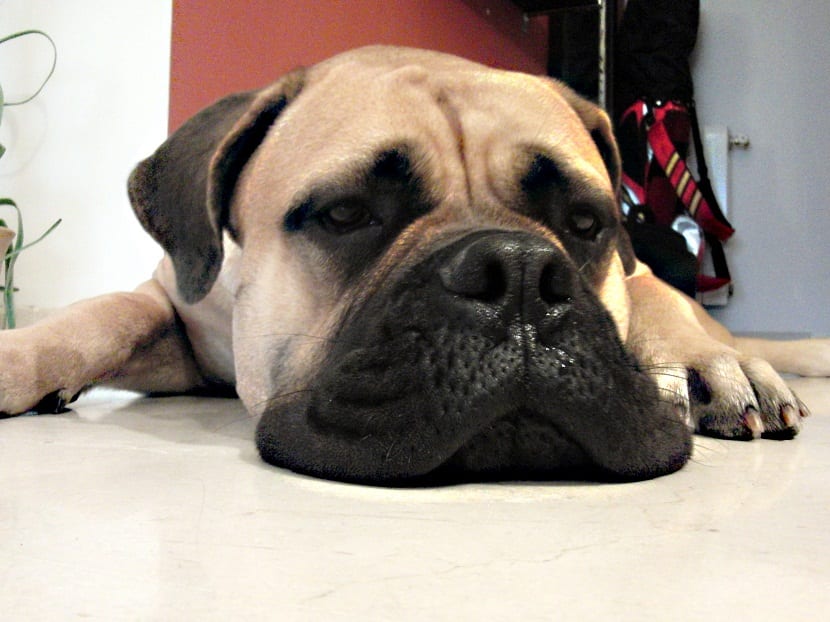
Although I suspected that my dog could have some type of cancer by heredity and breed type, he knew he had to take action from a proper diagnosis to be able to rule out that he did not have another disease.
Although my dog has a medical history where the T cell lymphoma is the protagonist and that apart this manifests as a tumor found in the small intestine, the fact that my pet is having similar clinical signs does not necessarily have to suffer from some form of cancer, but unfortunately for the owners and the veterinarians who maintain the care of their patients, the clinical signs of cancer that affect the intestines are similar to a variety of other ailments of the digestive tract, such as changes in appetite, anorexia or hyporexia or vomiting, where there is an active abdominal contraction to expel the stomach contents.
First bowel cancer symptoms to look out for

There are also nausea and vomiting, which is a passive evacuation of stomach contents, lethargy which is when you do not have the energy to carry out daily activities and Diarrhea, which is a combination of loose stools.
The first clinical signs that your pet may present are related to his lower digestive tract, which included abnormal defecation patterns, loose or liquid stools and presence of mucus. These signs are consistent with colitis or bowel diarrhea and have a wide variety of causes Among which we can find: intestinal parasites, dietary intention and excessive growth of normal bacteria of the digestive tract.
When my dog developed signs of colitis, we immediately started picking up stool samples for parasite testing and we also started giving her a digestive tract supplement in addition to her daily prebiotic.
When the fecal tests did not show any evidence of parasite, the treatment with an oral antibiotic called metronidazole, this is multifactorial in its properties to help digestive tract problems, because it kills many pathogenic bacteria and can deter the growth of normal overgrowth bacteria. This medicine also has an anti-inflammatory effect in the intestines so it can be used to inflammatory bowel diseases.
Clinical signs of bowel cancer in dogs

When doses of metronidazole and other supplements do not resolve the clinical signs, they can be performed Blood tests to determine if there are more serious problems affecting the liver, pancreas, kidneys, blood proteins, red and white blood cells, and other organs in the body.
The results on my pet showed a anemia with a low red blood cell count and slightly low hematocrit, he also had a small reduction in total protein and albumin.
Albumin is a type of protein that helps maintain blood pressure, being responsible for fifty percent of calcium transport around the body and also helps maintain many cellular functions in good condition. The loss of albumin can cause our dog to suffer inflammation in the intestines, leading to an inflammatory bowel disease.
Blood test results were more consistent with blood loss due to the combination of low RBC, TP, ALB, and HCT. The anemia seems different from the previous ones you have had since this time there was no sign of destruction of red blood cells evidenced by the release of bilirubin in the circulating blood volume, so the diagnoses showed that it could be cancer or a gastrointestinal ulceration.
Since intestinal cancer causes bleeding in the digestive tract and loss of protein, I felt that there could be an irregularity in the intestinal lymphoma. A treatment was carried out with which my dog improved quickly, he felt better and showed a better appetite and best of all, he was already making stools that had no mucus.
Hi ! I have a 16-year-old dog, she has gone back without wanting to eat, I took her to the vet and an abdominal ultrasound showed a large lump, according to the vet it is a tumor in the intestine, or inflammation in the intestine…. He told me to open the abdomen and pinch various parts to take samples for biopsy, and then operate… ..
I wanted to know if I can leave her until I see that she is wrong, and give her a treatment, not operate on her since she is very old and we do not know how her heart is and how long it will last ... what do you tell me? Thanks
Hello Mary, unfortunately yesterday my dog mimi a poddle, we had to put her to sleep, because that damn tumor invaded a large part of her intestines and if we chose to be awakened from anesthesia, she would only suffer, because she The worst was coming in terms of pain, vomiting, etc. The decision is not easy at all, because apparently Mimi physically looked completely healthy, never under guard even though she had days and days without eating, she was a warrior and that is why we prefer to give her a dignified death to see her suffer and slowly agonize. Now I am sure that all the love that she gave us for 12 years, has been compensated in heaven ... surely she woke up in a paradise where there was no more pain and she only dedicates herself to playing, barking, chasing balls and eating until she is satisfied. … She is happy now. So my advice is that if it is up to you to make your beloved pet not suffer, do it. It hurts yes, but she knows you always loved her. Blessings, I hope my answer helps you.
Today they told me that my dog had a tumor in the intestine that could not be operated on, I would like to know what treatment I can give him
Hello! I find myself in a similar situation... could you tell me what treatment you gave your dog? Thanks